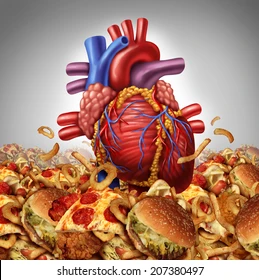Time to Ditch the Junk: Ultra-Processed Foods Linked to Increased Mortality

A 23-Year Study Links Ultra-Processed Foods to Increased Risk of Death: A Comprehensive Analysis

A groundbreaking study spanning over two decades has revealed a concerning association between the consumption of ultra-processed foods (UPFs) and an increased risk of mortality. This extensive research, published in The BMJ, delves into the potential long-term health implications of UPFs, shedding light on the need for dietary modifications and informed food choices.
Understanding Ultra-Processed Foods
Ultra-processed foods are industrially manufactured products that typically contain a multitude of ingredients, including refined carbohydrates, added sugars, unhealthy fats, artificial flavors, colors, and preservatives. These foods are often designed to be convenient, palatable, and have a long shelf life. Examples of UPFs include packaged snacks, sugary drinks, processed meats, instant noodles, ready-to-eat meals, and many breakfast care.

The Study’s Methodology and Findings
The study, led by researchers at Harvard T.H. Chan School of Public Health, analyzed data from two large cohorts encompassing over 100,000 participants with diverse backgrounds. Participants’ dietary habits were assessed using food frequency questionnaires, and their health outcomes were tracked for an average of 23 years.
The findings revealed a significant association between UPF consumption and all-cause mortality. Individuals who consumed the highest amounts of UPFs had a 14% increased risk of death from any cause compared to those with the lowest UPF intake. This increased risk was observed even after adjusting for various factors such as age, sex, smoking status, physical activity levels, and overall diet quality.
Cause-Specific Mortality
While the study demonstrated a link between UPFs and overall mortality, it also examined associations with specific causes of death. The researchers found that higher UPF consumption was particularly associated with an elevated risk of death from cardiovascular diseases, cancer, and respiratory diseases.
Potential Mechanisms Behind the Association
The exact mechanisms underlying the link between UPFs and increased mortality are still under investigation. However, several potential factors are being explored:
- Nutritional Deficiencies: UPFs are often low in essential nutrients like fiber, vitamins, and minerals, while being high in empty calories. This nutritional imbalance can contribute to chronic diseases and overall poor health.
- Inflammatory Ingredients: Many UPFs contain ingredients that can trigger inflammation in the body. Chronic inflammation is a known risk factor for numerous diseases, including cardiovascular disease and cancer.
- Gut Microbiota Disruption: Emerging research suggests that UPFs may negatively impact the gut microbiota, the community of microorganisms living in the digestive tract. An imbalanced gut microbiota is linked to various health problems. Environmental Contaminants: Some UPFs may contain low levels of environmental contaminants, such as heavy metals or pesticides, which could accumulate in the body over time and contribute to health risks.
Limitations and Future Directions
While the study’s findings are significant, it’s important to acknowledge its limitations. The study relied on self-reported dietary data, which may be subject to recall bias. Additionally, the observational nature of the study doesn’t establish a direct cause-and-effect relationship between UPFs and mortality. Further research, including randomized controlled trials, is needed to confirm these findings and explore the underlying mechanisms.
Future research should also investigate the impact of specific types of UPFs on health outcomes. This information could help guide dietary recommendations and inform public health policies.
Practical Implications and Dietary Recommendations
The findings of this study underscore the importance of limiting UPF consumption for optimal health. While it’s not necessary to completely eliminate UPFs from the diet, prioritizing whole, minimally processed foods is crucial.
Here are some practical tips for reducing UPF intake:
- Cook at Home More Often: Preparing meals at home allows for greater control over ingredients and cooking methods.
- Read Food Labels Carefully: Pay attention to ingredient lists and choose products with fewer additives and processed ingredients.
- Limit Processed Meats: opt for lean protein sources like poultry, fish, beans, and lentils.
- Choose Whole Grains: Replace refined grains with whole grains like brown rice, quinoa, and whole-wheat bread.
- Snack on Fruits and Vegetables: These provide essential nutrients and fiber while being low in calories.
- Drink Water: Limit sugary drinks and opt for water, unsweetened tea, or coffee.
Conclusion
The 23-year study linking ultra-processed foods to an increased risk of death serves as a wake-up call for individuals and policymakers alike. While UPFs may offer convenience, their potential long-term health consequences cannot be ignored. By making informed dietary choices and prioritizing whole, minimally processed foods, individuals can take proactive steps towards a healthier and longer life. Sources and related content.
- What are ultra-processed foods (UPFs)?
- UPFs are industrially manufactured food products that often contain numerous ingredients, including refined carbohydrates, added sugars, unhealthy fats, artificial flavors, colors, and preservatives.
- What were the main findings of the 23-year study?
- The study found a significant association between high consumption of UPFs and an increased risk of all-cause mortality, particularly from cardiovascular diseases, cancer, and respiratory diseases.
- How was the study conducted?
- The study analyzed data from over 100,000 participants, tracking their dietary habits and health outcomes for an average of 23 years.
- What are some potential mechanisms linking UPFs to increased mortality?
- Possible mechanisms include nutritional deficiencies, inflammatory ingredients, gut microbiota disruption, and exposure to environmental contaminants.
- What are some examples of ultra-processed foods?
- Examples include packaged snacks, sugary drinks, processed meats, instant noodles, ready-to-eat meals, and many breakfast cereals.
- Should I completely avoid ultra-processed foods?
- While it’s not necessary to eliminate them entirely, it’s crucial to limit UPF consumption and prioritize whole, minimally processed foods for optimal health.
- What are some tips for reducing UPF intake?
- Cook at home more often, read food labels carefully, limit processed meats, choose whole grains, snack on fruits and vegetables, and drink water instead of sugary beverages.
- Are there any limitations to the study?
- Yes, the study relied on self-reported dietary data and observational methods, which may have limitations. Further research is needed to confirm the findings and explore the underlying mechanisms.
- What are the implications of this study for public health?
- The study highlights the need for dietary recommendations and public health policies that encourage the consumption of whole, minimally processed foods and discourage the consumption of UPFs.
- Why is it important to prioritize whole foods over ultra-processed foods?
- Whole foods provide essential nutrients and are less likely to contain harmful additives or trigger inflammation, contributing to better overall health and longevity.
- The 23-year study highlighting the link between ultra-processed foods and increased mortality underscores the importance of dietary choices for long-term health. While UPFs offer convenience, their potential negative impact on cardiovascular health, cancer risk, and overall mortality cannot be ignored. The study serves as a call to prioritize whole, minimally processed foods rich in essential nutrients and fiber. By understanding the risks associated with UPFs and making informed dietary decisions, individuals can take proactive steps towards a healthier and longer life. Policymakers and public health organizations also have a role to play in promoting healthier food environments and educating the public about the potential dangers of UPF consumption.
